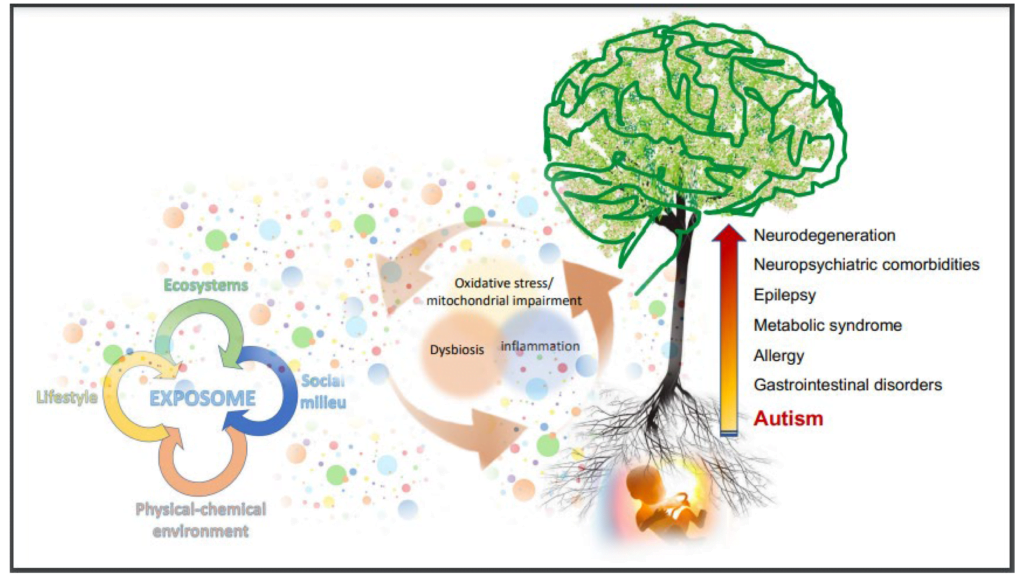Empowering autism with compassion and understanding.
What CausesAutism
Unraveling the Enigma
We are trying to be the information hub, trusted source for information and assistance on various developmental conditions. In this comprehensive guide, we delve into a topic of profound importance: the causes of autism. Understanding the origins of autism is an essential step towards comprehensive support, advocacy, and early intervention.
Deciphering the Origins of Autism
Autism Spectrum Disorder (ASD), commonly known as autism, is a complex neurodevelopmental condition that affects communication, behavior, and social interactions. The question of what causes autism is a subject of ongoing research, with a combination of genetic, environmental, and neurological factors believed to play a role.
The origins of Autism Spectrum Disorder (ASD) are being studied by researchers, who believe a combination of genetic and environmental factors contribute to its development. This research is aimed at understanding the interplay between genetic predispositions, prenatal and postnatal factors, and offers potential for early intervention strategies and improved support for individuals and families with autism.

Key Features Of Autism Causes
Autism causes are complex and multifaceted, involving genetic and environmental factors. Genetic mutations and variations increase the risk of Autism Spectrum Disorder. Prenatal exposures, maternal health, and early life experiences are studied. Understanding these causes is crucial for developing effective interventions and tailored support for individuals with ASD.
Genetic Factors
Research indicates that genetic factors contribute significantly to the development of autism. Studies involving twins and families with multiple affected individuals have shown a higher likelihood of autism in families with a history of the disorder. Specific genes and genetic mutations have been linked to an increased risk of autism, although no single gene is solely responsible for its occurrence.
Neurological and Brain Development
Research into brain development and connectivity has shed light on how autism might originate. Studies have identified differences in brain structure, function, and connectivity in individuals with autism. It’s thought that disruptions in early brain development, particularly in areas responsible for communication and social interaction, may contribute to the emergence of autism symptoms.
Environmental Influences
Certain environmental factors during pregnancy and early childhood have been studied as potential contributors to autism. These factors include prenatal exposure to certain medications, infections, toxins, and maternal health conditions. However, it’s important to note that these environmental influences interact with genetic predispositions and do not directly cause autism on their own.
Complex Interplay
It’s essential to recognize that the causes of autism are multifaceted and likely involve a complex interplay of genetic predispositions and environmental influences. The interaction between these factors is not yet fully understood and is a subject of ongoing research in the scientific community.


The Role of Early Intervention
A great first step is for parents to discuss with their children and teens age-appropriate ways of engaging with others online; to encourage exploration and creativity and opportunities to advocate on issues that affect or inspire them. Protecting their privacy while enabling this self-expression is key to keeping them safe.
Genetic's Risk Factor
At GRS Corp, we recognize the significance of genetic risk factors in autism. Autism Spectrum Disorder (ASD) has a strong genetic component, with various genetic mutations and variations being linked to an increased susceptibility to ASD. These genetic insights provide valuable information for both research and personalized support. By understanding the genetic underpinnings of autism, we can work towards more precise diagnostics, early interventions, and tailored therapies, ultimately enhancing the quality of life for individuals on the autism spectrum and their families. Our commitment to raising awareness and promoting research in this field drives us to continually seek innovative solutions that harness the power of genetics to support those affected by autism.

We are committed to providing accurate information and resources on autism and other developmental conditions. Understanding the potential causes of autism is an important step towards building a more inclusive and supportive environment for individuals with autism and their families. As research continues to unfold, we remain dedicated to fostering awareness, understanding, and empowerment.
